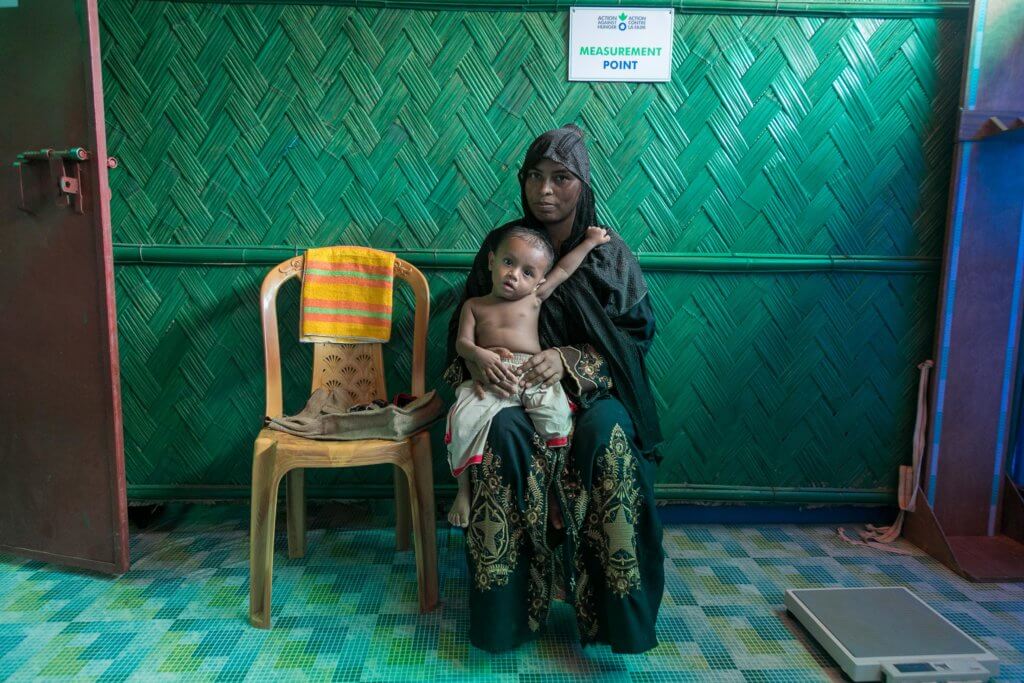Food for Thought: Fighting Malnutrition to Unlock Human Potential
On the eve of the third Nutrition for Growth (N4G) Summit, held December 7th in Tokyo, I was privileged to gather virtually with leaders from a host of organizations determined to fight the pervasive global scourge of malnutrition. Our approach is to join forces through a new philanthropic collective called Stronger Foundations for Nutrition.
The discouraging fact of the matter is this: Every ten seconds, a child dies from malnutrition. That means that in the year since I wrote my last article on this subject, 3,000,000 children have died of malnutrition. Three million. That’s more than have died in that same period from AIDS, malaria, and tuberculosis—combined. And these numbers could well go higher as the global pandemic enters its third year. Indeed, an additional 7,000,000 children are already thought to have been pushed into malnutrition because of pandemic-related disruptions to essential food and health services; some predict that an additional 10,000 children will die each month from this completely preventable cause.
A child wades through water on her way to school in Kurigram district of northern Bangladesh during floods in August 2016.
©UNICEF/AKASH
Covid has exacerbated the problem. But its negative impact may be dwarfed by that of climate change, which will have the most severe effect on those in extreme poverty, who also suffer most significantly from malnutrition. These individuals did the least to cause climate change, but it nonetheless gravely threatens their livelihoods in agriculture, their food security, and the nutritional status of their families. Climate change is already pushing more people into extreme poverty, bringing new famines, and worsening malnutrition. It’s a vicious cycle and we have to escape it. Given that food production is so tightly intertwined with climate—driving almost 20 percent of climate change—we cannot solve for either without solving for both. It will require a massive and concerted effort, which is why we are working with Stronger Foundations for Nutrition.
Stronger Foundations for Nutrition aims to combat malnutrition and its many deleterious effects—which also include stunting and wasting—in fulfillment of the second of the United Nations Sustainable Development goals, Zero Hunger– and in support of numerous other goals including on poverty, health and education. Its founding members include the Bill & Melinda Gates Foundation, Children’s Investment Fund Foundation, Tata Trusts, Rockefeller Foundation, Dangote Foundation, Eleanor Crook Foundation, Family-Larsson Rosenquist Foundation, Chaudhary Foundation, Kirk Humanitarian, Rotary International and King Philanthropies, of which I am CEO.
Our new coalition was formally announced at an official side event of the Nutrition for Growth Summit, or N4G, at which government and private sector donors pledged more than $27 billion to address the global nutrition crisis. As USAID Administrator Samantha Power shared at N4G, “By investing in nutrition programs, applying the evidence of what works, and adapting quickly, we can prevent child malnutrition, even in the time of COVID, and we can build a healthier world for everyone.”
We agree with Administrator Power, which is why I joined the steering committee of Stronger Foundations for Nutrition and announced that King Philanthropies would commit $100 million to fighting food insecurity and malnutrition. Ours was one of the many important commitments made at the event. Chris Elias, president of the Global Development Division of the Bill & Melinda Gates Foundation—which in September committed $922 million to advance global nutrition— noted that the range of commitments made through Stronger Foundations for Nutrition “are a real testament to how foundations can strategically invest in evidence based and high-impact investments.”
The oft-overlooked truth is that malnutrition is not only a symptom and effect of poverty; it is also a cause. So by addressing nutrition, we can help people climb out of poverty. Indeed, there is a wide body of evidence showing that well-nourished children are more likely to complete school and their future earnings increase significantly. Unfortunately, there is a huge disconnect between the size of the malnutrition problem and the funding that is currently directed to address it. Malnutrition is the leading cause of death of children under five – responsible for 45 percent of deaths, in fact – and yet receives less than 1 percent of donor funding. We need to change this, and philanthropy has a critical and catalytic role to play.
In the recent N4G side event, Nemat Hajeebhoy, the chief of nutrition for UNICEF Nigeria, noted eloquently that “Funding from foundations is usually nimble and catalytic and foundations can take risks such as investing in evidence, generating acceleration at scale, which other donors cannot.” This is certainly true. But, while foundations can be nimble, they are often less adept at working together. This means that they sometimes end up trying to reinvent the wheel when it comes to finding solutions and conducting the rigorous—and time-consuming—due diligence needed to identify high impact interventions and organizations.
Ankush Nanoma (right), 25, and his wife, Rekha Nanoma, 22, play with their two children at home in Jethana, a village in Sagwada Town, Dungarpur District, Rajasthan.
©UNICEF/KOLARI
King Philanthropies devotes considerable time and energy to due diligence. We’re just getting started, but we’ve been funding a portfolio of excellent organizations working on the ground with interventions that improve food security and nutritional status, either directly or indirectly. We are so proud to have partnered in recent years with with One Acre Fund, Landesa, Last Mile Health, BRAC, Babban Gona, Sanku, Proximity Designs, CAMFED, and Particles for Humanity. Now we are also proud to be joining forces with fellow members of Stronger Foundations for Nutrition, which offers us all a tremendous opportunity to work in concert to drive real change. As Matt Freeman, the executive director of Stronger Foundations for Nutrition, so aptly observed, “The diversity of this community shows there is real innovation happening in how funds are raised and disbursed, and that it is time to start dreaming bigger to truly end malnutrition.”
Banner image courtesy of ©UNICEF/Zhanibekov
